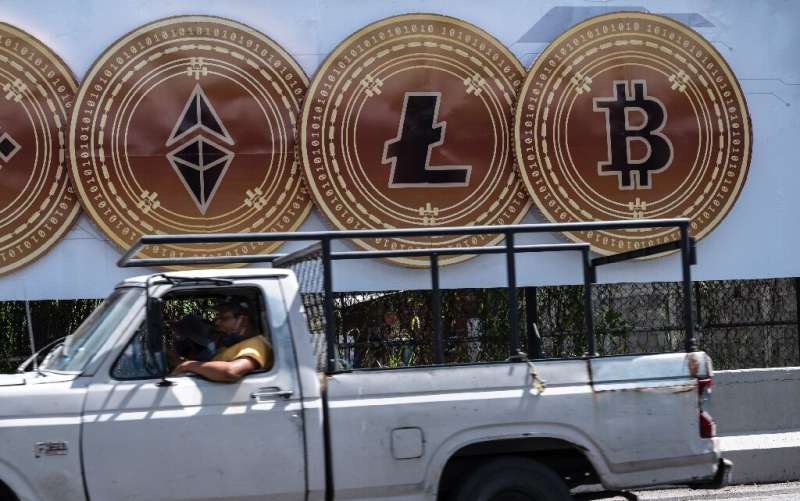From Squid coin to memes, the ‘Wild West’ of crypto

From a dodgy digital currency inspired by Netflix hit “Squid Game” to highly-volatile dog-themed coins, the cryptocurrency sector has become riskier than ever as it soars in value.
The combined value of all cryptocurrencies topped $3 trillion for the first time on Monday, as more mainstream investors rush into the sector.
While bitcoin is leading the way—surging Tuesday to a record-high $68,513 as the world’s most popular virtual unit rides a wave of feverish speculative demand—investors snapping up newer cryptocurrencies are falling victim to scams.
“Any team can develop an app and issue a coin,” noted Martha Reyes, head of research at cryptocurrency trading platform Bequant.
One such asset is “Squid coin”, which last month launched without the permission of Netflix, and within days rocketed in value before plummeting to a near-zero valuation.
After the market value of all its coins together exceeded $30 million, investors then discovered that they could not cash in on their gains.
Instead, the creators of Squid coin disappeared from social media and so did investors’ profits, mirroring other cryptocurrency scams.
The apparent scam has been described as a “rug pull” in reference to a carpet being yanked from under investors’ feet.
“A rug pull is but one of many schemes through which naive retail investors are drawn in by the hope of quick riches, leaving them vulnerable,” Eswar Prasad, an economist at US-based Cornell University, told AFP.
‘Wild West’
Kim Grauer, director of research at Chainalysis, said the rapid growth of decentralised finance (DeFi) “and ambitious investors have created a favourable environment for rug pull scams over the last year”.
Earlier in 2021, Gary Gensler, who chairs the US markets watchdog SEC, likened the crypto sector to the “Wild West”.
Grauer said scammers operate on a global scale, even if many, like their victims, are found to be in eastern Europe.
To purchase Squid coin, investors had to be connected to a decentralised platform known as PancakeSwap.
Unlike large cryptocurrency exchange platforms such as Coinbase, which is registered by US and European regulators, DeFi projects like PancakeSwap avoid a third party and so anonymity is often possible.
France-based lawyer Romain Chily, whose firm ORWL specialises in cryptocurrency, says he sees cases of new scams every month.
According to him, DeFi is “full of products that work quite well—but for investors who are savvy”.
Chily added that the chances of recovering investments following scams are “extremely slim”.
Costly jokes
Even regulated platforms are home to cryptocurrencies that leave many feeling sceptical.
Since the start of the year, two dog-themed units have seen their values soar—Dogecoin created as a joke in 2013 and Shiba Inu born in 2020.
Such internet phenomena are nicknamed “memecoins” and are particularly volatile trades.
But experts are keen to point out differences between these cryptocurrencies and scams.
“It’s a branding exercise,” said Reyes, who likens soaring memecoins to companies such as AMC Entertainment and GameStop that saw their share prices surge earlier this year.
An army of amateur investors, many exchanging advice and opinions on a popular forum at the Reddit website, had bought up shares in the companies in defiance of hedge funds that had bet the stocks would tank.
Crypto market value tops $3 trillion for first time
© 2021 AFP
Citation:
From Squid coin to memes, the ‘Wild West’ of crypto (2021, November 9)
retrieved 9 November 2021
from https://techxplore.com/news/2021-11-squid-coin-memes-wild-west.html
This document is subject to copyright. Apart from any fair dealing for the purpose of private study or research, no
part may be reproduced without the written permission. The content is provided for information purposes only.
For all the latest business News Click Here

